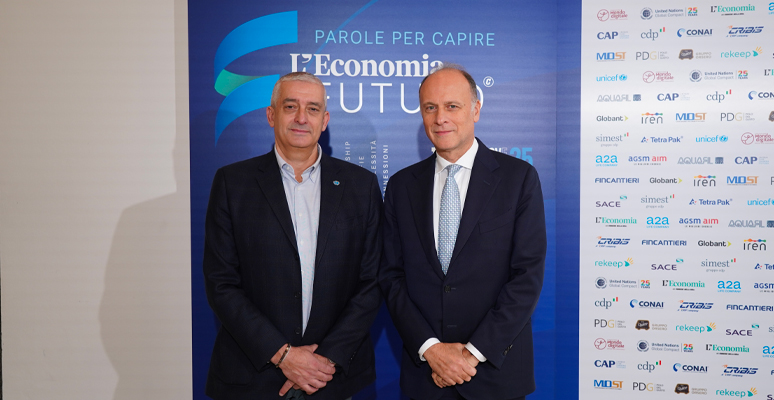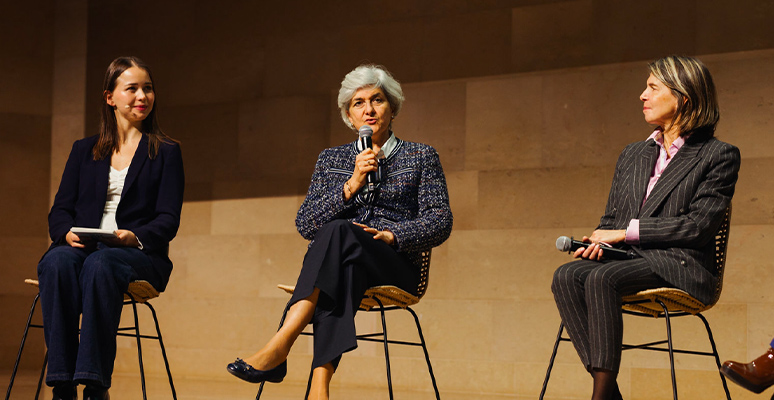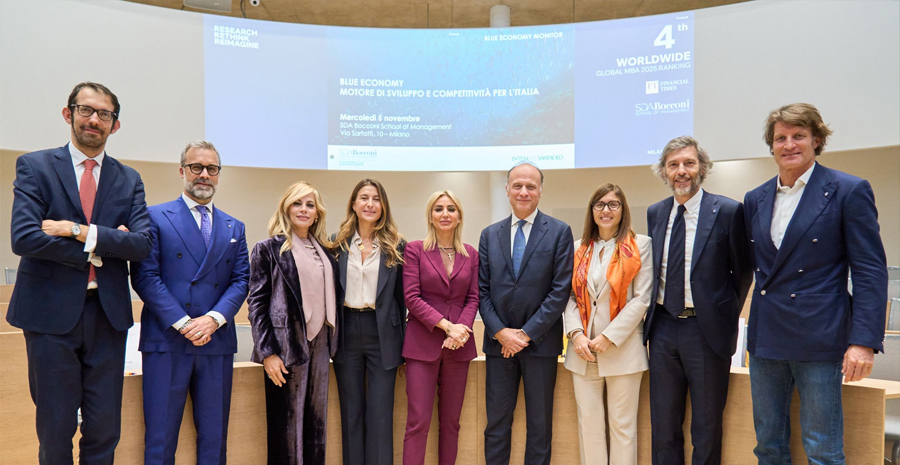
- Start date
- Duration
- Format
- Language
- 1 Dec 2025
- 3 days
- Class
- English
A journey through the digital revolution to learn how to capitalize on these enhancing technologies to gain competitive advantage in existing and new markets.
Even though none of the 17 UN Sustainable Development Goals directly incorporates space, the space industry contributes to achieving all of them. A specific eighteenth Goal could ensure the sustainability of space exploration and future lunar and Martian settlements.
The aspiration was expressed at a conference organized by SDA Bocconi’s Space Economy Evolution Lab (SEE Lab) and Telespazio. The presentation of a book (Space in Our Hands, by David W. Brown, published by Mimesis) was attended by astronaut Paolo Nespoli (pictured above) and most of the other key players in the space economy who were interviewed for the publication. Nespoli introduced the new philosophy for space and sustainability at the heart of the SEE Lab project, which gave rise to the book. The SEE Lab and Telespazio objective was to increase awareness of the issues at stake, especially among younger generations, stimulating a change of mentality and action.
During the conference, space sustainability was approached from four perspectives:
From the privileged perspective of someone who has been able to observe the Earth from space for 313 days over the years, Nespoli concluded by emphasizing the absolute necessity of international cooperation to progress on the path of space sustainability.
SDA Bocconi School of Management

A journey through the digital revolution to learn how to capitalize on these enhancing technologies to gain competitive advantage in existing and new markets.

Fornire gli strumenti per (ri)disegnare la roadmap di adozione e sviluppo dell’AI in azienda bilanciando strategia, elementi tecnologici, organizzativi e di contesto.

The course aims to investigate how a more digital approach in supply chain processes can improve the level of service provided


